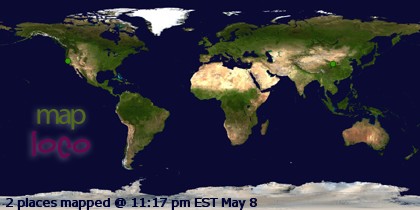I mentor a large number of young Indian engineers in my work. They come from all over India - Bangalore, Mangalore, Tamilnadu, New Delhi, Hyderabad, Gurjurat, Mumbai, Chennai, and elsewhere. Most all of them speak Hindi and English - some better than others. Several of my close mentees are fluent Tamil speakers. To get to know them more, and to "put them at ease" in our discussions, I have always tried to adopt and embrace some of the local languages. India has 29 different distinct dialects spoken by a million or more people each - sort of like how Oklahoma in the US has 21 entirely different Native American languages, but amplify that from 3.9 million out to 1.1 Billion people instead.
As I wanted to avoid doing a Michael Scott / Steve Carell linguistic and social blunder of greeting "every Indian" with "Namaste", I inquired, if "Namaste" was indeed a normal greeting, between co-workers and friends in India. My closest mentees quickly assured me "No Joe, use 'Namaskaram' for Tamil speakers, and 'Namaskar' for Hindi speakers". They nicely told me that "Namaste" translates literally to "I greet the God within you" or "the divine presence within you", whereas "Namaskar" or "Namaskaram" translates into a hello that equates to "I humble myself before you" or more loosely "neither of us is above the other". It expresses an "Absence of Arrogance" and a "reduction of ego", which is very important in a culture used to many centuries of class distinctions. This distinction is very important to me personally, as I don't want to go through a great deal of obsequious gestures and gyrations, being called "Sir" and such. I'm "Just Joe" - you don't have to call me "Sir". I've never been knighted, and my mentees don't work for me. Yes, it's a sign of respect, but I want to break down those barriers and get them to open up to me, and to speak with me in a normal conversational level, the best they can, without all the pomp and circumstance malarkey.
This is not to say the "Namaskar" and "Namaskaram" have NO spiritual context whatsoever, and "Namaste" is completely spiritually oriented. No, it's far more nuanced than that. But I have seen where "Namaste" is over-used by every practitioner, partial practitioner, enthusiast, or fan of yoga, or of India, and such over-use cheapens and degrades the word and it's inherent meaning. So I actively AVOID using "Namaste" with anyone I do not know very well, and use instead. "Namaskar" with most native Indians in greeting them on the phone, in work related Instant Messages, in emails, or on the occasion that they visit the US or I visit India. I don't include the traditional "bow", but in electronic correspondence, it doesn't really matter or convey that well. If I find out that the person with whom I am speaking is a native of Tamilnadu, I will switch over to "Namaskaram" the next time we speak.
You can use whatever you like - I am not preaching or advocating the use of one over the other - explaining why I tend to "cringe" when I hear "Namaste" being over-used around the world, often by people who think that it is just some kind of greeting associated with practicing yoga, and who do not understand the deeper meaning therein.
If you'd like to read more about the differences and deeper meaning, you may find useful links here, here, here, and here.
11 years ago

Note: to completely invalidate this post, my good friend Sundar informed me tat "Namaskar" is slang in Southern India, while "Namaste" is the normal greeting in Northern India, and "Namaskaram" is the traditional Tamil greeting... so the differentiation really has no deeper meaning than that. If you are visiting Delhi, Mumbai, Calcutta (Kolkata) then use "Namaste".
ReplyDeleteNamaskaram Joe (I am learning Tamil)I see how this clarification is accurate in terms of common speech but I am still grateful to understand the nuances which will still hold true in some settings, especially when the communication is in a more thoughtful and considered setting rather than casual greetings.
ReplyDeletethanks,
rog